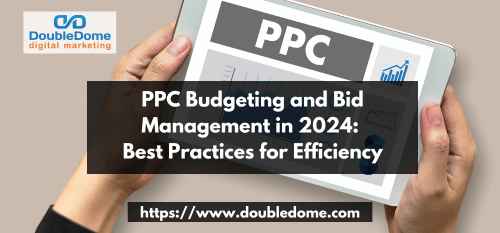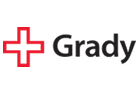Pay-Per-Click (PPC) advertising continues to be a pivotal strategy for businesses aiming to increase their online visibility and drive targeted traffic to their websites. However, with evolving technology and changing consumer behaviors, the landscape of PPC advertising is constantly shifting. As we delve into 2024, it’s crucial for marketers and advertisers to understand the best practices for PPC budgeting and bid management to maximize efficiency and achieve optimal results.

Understanding the Importance of PPC Budgeting
1. Establish Clear Goals and Objectives
Before diving into PPC budget allocation, it’s essential to define clear goals and objectives. Whether the aim is to increase website traffic, generate leads, or boost sales, having well-defined goals will guide budget decisions and ensure alignment with overarching business objectives.
2. Conduct Thorough Keyword Research
Keyword research lays the foundation for successful PPC campaigns. By identifying high-performing keywords relevant to your business niche and target audience, you can optimize budget allocation by focusing on terms with the highest potential for driving conversions.
3. Analyze Historical Data and Performance Metrics
Drawing insights from past campaign performance is instrumental in refining PPC budgeting strategies. Analyze key metrics such as click-through rates (CTR), conversion rates, and return on investment (ROI) to identify trends, areas for improvement, and allocate budgets more effectively.
Implementing Effective Bid Management Techniques
1. Utilize Automated Bidding Strategies
In 2024, automation technologies have become increasingly sophisticated, offering advertisers a plethora of bid management options. Automated bidding strategies, such as Target CPA (Cost Per Acquisition) and Maximize Conversions, leverage machine learning algorithms to optimize bids in real-time, maximizing the likelihood of achieving campaign objectives while adhering to set budget constraints.
2. Leverage Audience Targeting and Segmentation
Personalization is key in modern PPC advertising. By segmenting your target audience based on demographics, interests, and browsing behavior, you can tailor your bids to specific audience segments, ensuring that your ads are displayed to the most relevant users, thus increasing the likelihood of conversion.
3. Implement Ad Scheduling
Timing plays a crucial role in the success of PPC campaigns. By analyzing when your target audience is most active and engaged, you can schedule your ads to appear during peak times, maximizing visibility and increasing the probability of clicks and conversions.
4. Monitor Competitor Strategies
Keeping an eye on competitor PPC strategies can provide valuable insights into industry trends, keyword performance, and potential gaps in your own campaigns. By analyzing competitor ad copies, landing pages, and bidding behaviors, you can refine your own PPC budgeting tactics to stay competitive in the market.
5. Embrace Seasonal Trends and Events
Seasonal trends and events can significantly impact PPC performance. Whether it’s holidays, industry events, or peak buying seasons, adjusting your PPC budgeting strategies to capitalize on seasonal trends can yield higher ROI and enhance campaign effectiveness.
6. Implement Negative Keywords
Negative keywords play a crucial role in refining PPC targeting and minimizing budget wastage. By identifying and excluding irrelevant search terms that are unlikely to result in conversions, you can ensure that your ads are displayed to the most qualified audience, thereby maximizing budget efficiency.
7. Test and Iterate Continuously
PPC advertising is an iterative process that requires constant testing and optimization. Experiment with different ad copies, landing page designs, and bidding strategies to identify what works best for your target audience. By embracing a culture of continuous improvement, you can refine your PPC budgeting approach and drive better results over time.
8. Utilize Ad Extensions
Ad extensions offer additional opportunities to enhance the visibility and relevance of your ads. From site links and call extensions to structured snippets and location extensions, leveraging ad extensions can improve ad performance, increase click-through rates, and make your ads more compelling to potential customers.
9. Leverage Remarketing Campaigns
Remarketing allows you to re-engage users who have previously interacted with your website or shown interest in your products/services. By allocating a portion of your PPC budget to remarketing campaigns, you can target high-intent users, nurture leads, and drive conversions more effectively.
10. Optimize Landing Pages
The effectiveness of PPC campaigns is not solely determined by ad copy and bid management; landing pages play a critical role in converting clicks into leads or sales. Ensure that your landing pages are optimized for relevance, clarity, and user experience. A cohesive and compelling landing page that aligns with your ad messaging can significantly improve conversion rates and maximize the ROI of your PPC budget.
Conclusion
As we navigate the dynamic landscape of PPC advertising in 2024, effective budgeting and bid management are paramount to achieving optimal results. By setting clear goals, conducting thorough research, and leveraging advanced bid management techniques, advertisers can maximize the efficiency of their PPC campaigns, driving meaningful results and staying ahead of the competition.
Supercharge your online advertising with DoubleDome’s PPC Services! Drive targeted traffic and maximize ROI. Ready to elevate your campaigns? Talk to us today for personalized strategies!








